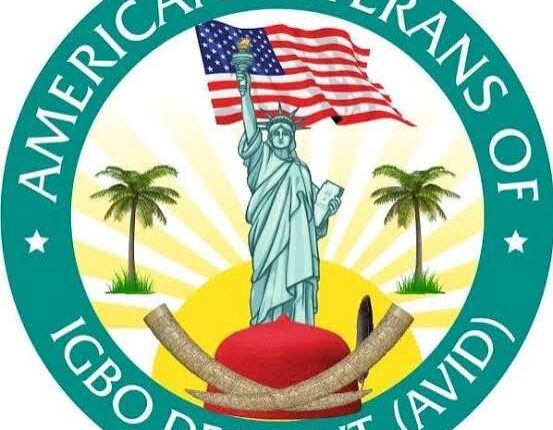U.S.-Based Igbo Veterans Coalition Urges Nigeria To Address Global Concerns Over Attacks On Christians
A coalition of American-based advocacy groups has urged the Nigerian government to take seriously growing international concern over reports of attacks on Christians in parts of the country.
The call follows remarks by a United States senator who condemned what he described as “targeted violence against Christian communities in Nigeria,” sparking renewed debate over the country’s human rights record.
In a statement released on Thursday and signed by Dr. Sylvester Onyia, the Coalition of American Veterans of Igbo Descent (AVID), in partnership with Ambassadors for Self-Determination and Rising Sun, said Nigeria must engage constructively with the global community to address “perceptions of religious persecution” and strengthen confidence in its commitment to justice and equality.

“We acknowledge the sovereignty of Nigeria, but sovereignty should not shield violations of fundamental human rights,” the coalition said.
“What concerns the international community is not Nigeria’s unity, but the safety and dignity of all its citizens, regardless of religion or ethnicity.”
The groups were responding to comments attributed to Nigerian officials who had dismissed foreign reports of religious persecution as “malicious narratives intended to discredit Nigeria.”
In recent weeks, several members of the U.S. Congress have expressed concern about the safety of Christians and other vulnerable groups in northern and Middle Belt Nigeria. Some lawmakers have also called for the U.S. State Department to re-designate Nigeria as a “Country of Particular Concern (CPC)” for religious freedom violations — a designation Nigeria briefly held in 2020 before being delisted a year later.
The coalition said it welcomed renewed international engagement on human rights issues in Nigeria, noting that constructive dialogue with global partners could help address longstanding grievances linked to intercommunal and religious tensions.
AVID cited reports of hundreds of Christian worship centres and villages attacked over the past decade, often attributed to insurgents, bandits, or communal disputes. It urged the Nigerian government to do more to protect vulnerable communities and ensure justice for victims of violence.
While the Nigerian government has consistently rejected allegations of religious persecution—arguing that insecurity is driven by criminality, resource competition, and economic hardship—the coalition maintained that the state’s duty remains to protect every citizen without discrimination.
In its most recent statement, the Nigerian government reaffirmed its commitment to the rule of law, human rights, and interfaith harmony, while advising foreign observers to verify claims before making conclusions about the country’s internal affairs.
AVID, however, insisted that international oversight is vital to promoting transparency and accountability. It appealed to the U.S. Congress and the United Nations Human Rights Council to continue monitoring developments in Nigeria and supporting humanitarian interventions in conflict-affected regions.
The coalition also called for stronger collaboration between the Nigerian government, faith-based organizations, and civil society groups to promote peacebuilding and reconciliation.
“Lasting peace will come only when all sides commit to justice, dialogue, and reconciliation,” the statement said.
AVID further urged the Nigerian government to review the cases of individuals detained over political or self-determination activities, including Mazi Nnamdi Kanu, leader of the Indigenous People of Biafra (IPOB), whose prolonged detention continues to draw international concern.
Describing Kanu’s case as “an opportunity for the government to demonstrate adherence to constitutional and judicial principles,” the coalition said Nigeria’s reputation abroad depends on how it upholds justice at home.
“Nigeria’s image abroad is best defended through justice at home,” AVID stated.
“We believe the government can build trust with both citizens and international partners by addressing these issues transparently.”
The groups expressed hope that sustained engagement between Nigeria and its allies would help advance peace, human rights, and religious freedom across the country.

